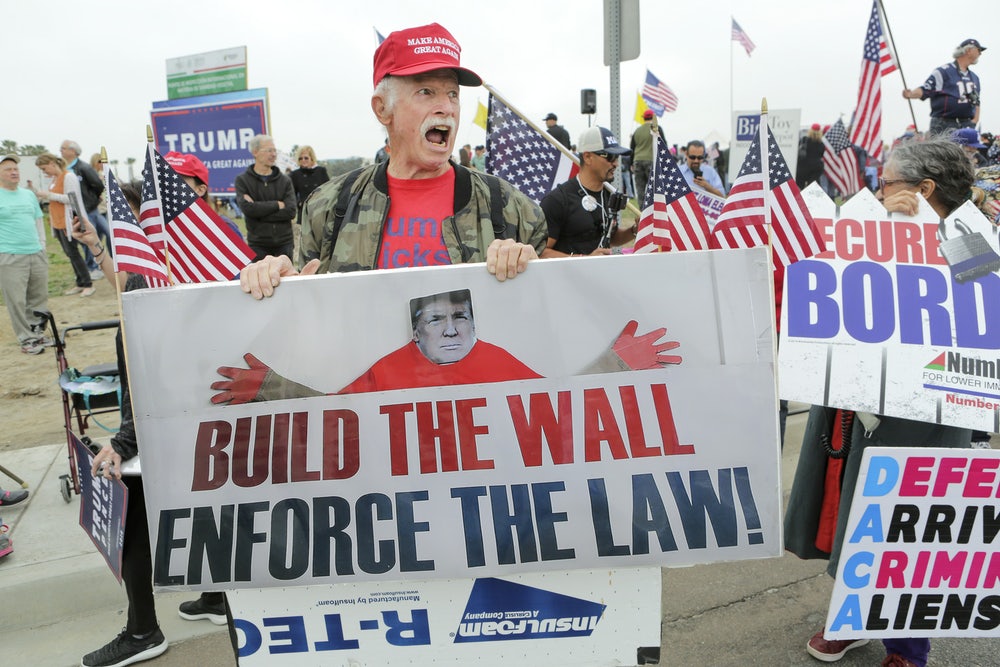Throughout U.S. history, politicians have demonized immigrants at the expense of society as a whole.
In a bid to whip up his base in the closing days before the midterm elections, President Donald Trump announced his intention to end birthright citizenship. The move shifts focus from the thousands of desperate women, men, and children fleeing violence and unrest in Central America to an even more vulnerable target: the approximately 275,000 babies born annually in the United States to non-citizen parents. With a stroke of his pen, Trump is hoping to do away with a right that is spelled out in the Constitution and which represents America’s historical values of equality and openness.
A day earlier, German Chancellor Angela Merkel, a fierce defender of liberal democratic values, announced that she would not seek another term after a foreboding election in the state of Bavaria in which a third of voters cited migration and the integration of foreigners as the biggest problem facing the state. The populist onslaught has been egged on by the anti-immigration party Alternative for Germany (Afd), which gained seats in last month’s election despite the fact that the number of refugees and migrants in the country has dropped markedly from highs three years ago.
On both sides of the Atlantic, politicians are portraying immigrants and refugees as a plague on society: job-takers and criminals who make us less prosperous and less safe. It’s a familiar narrative, usually untethered from the facts, that has been used throughout history to stir up democratic society’s worst—and most self-defeating—political impulses. If we don’t change course, the consequences could be dire, and not just for thousands of desperate immigrants who deserve a chance for a new life. History has shown that when immigration policy is tightened, we all lose.
In the mid-1800s, America learned the hard way that policy driven by anti-immigrant rhetoric has consequences not just for our moral standing, but our economy and national security.
Chinese laborers in California were manning the gold rush and building the first transcontinental railroad. In doing so, they provided cheap labor and tax revenue to fill California’s fiscal gap. Mainly young, healthy males, these immigrants made little use of social services and health systems.
Still, when the post–Civil War economy declined in the 1870s, political leaders embraced and spread anti-Chinese sentiment, blaming the “coolies” for depressed wage levels. In California and around the country, states passed long-lasting anti-Chinese laws. So did the federal government: Chinese Exclusion Act deprived Western states and Hawaii of needed labor, tax revenues, and citizens available to fight and work during wartime.
This kind of erratic, transactional approach to immigration policy has been a defining feature of our relationship with Mexican migrants, which has been marked by spasms of expulsion motivated by political or ethnic antipathy, followed by a re-embrace whenever it’s perceived as serving America’s economic interests.
Read full article here.




